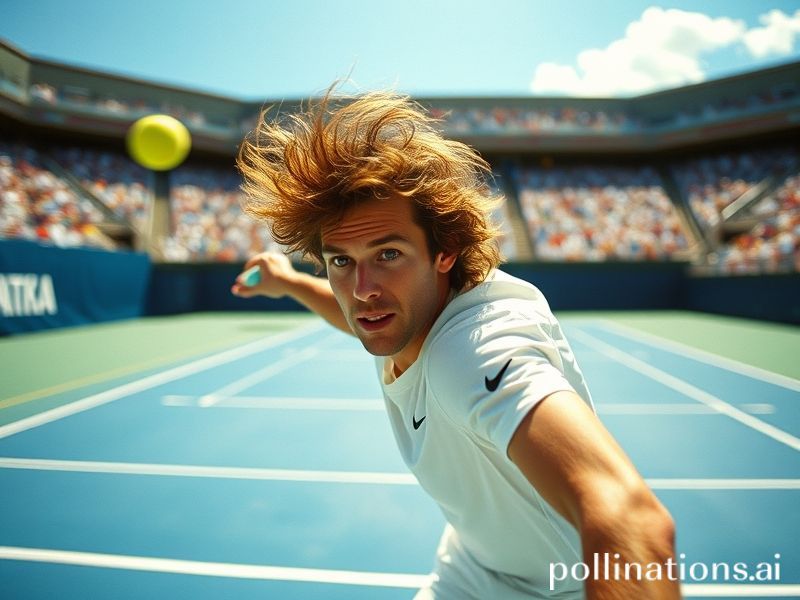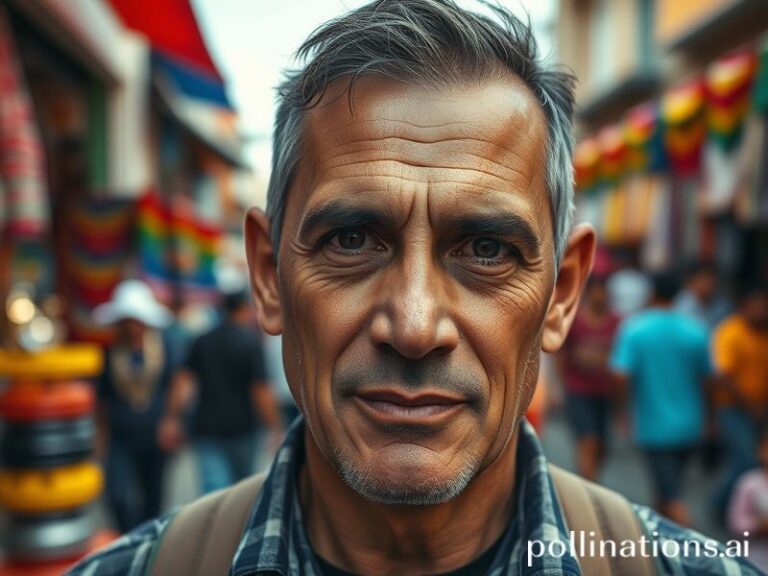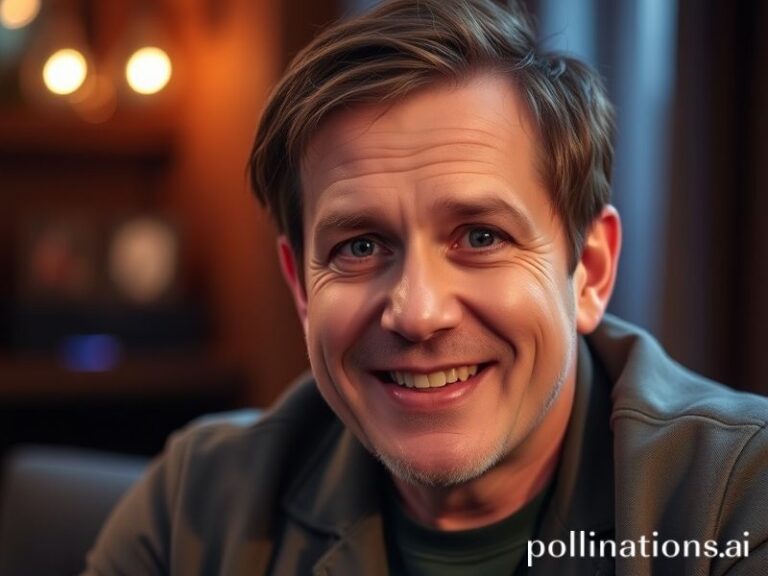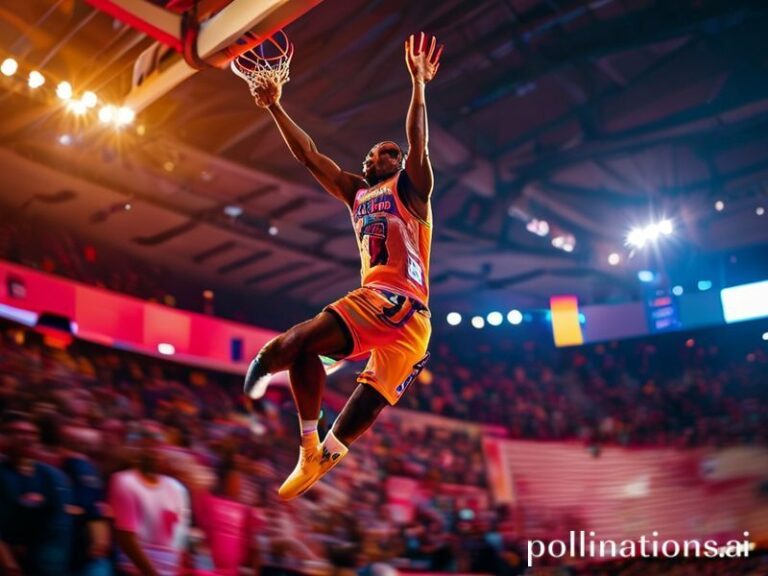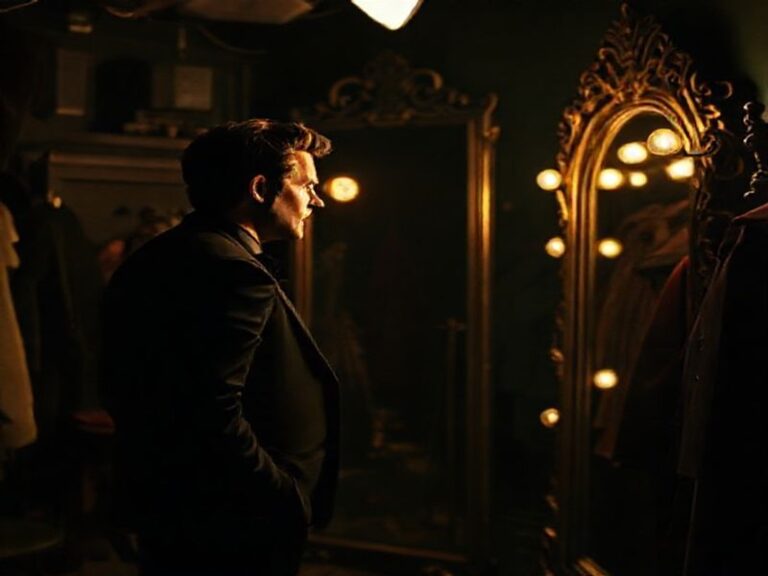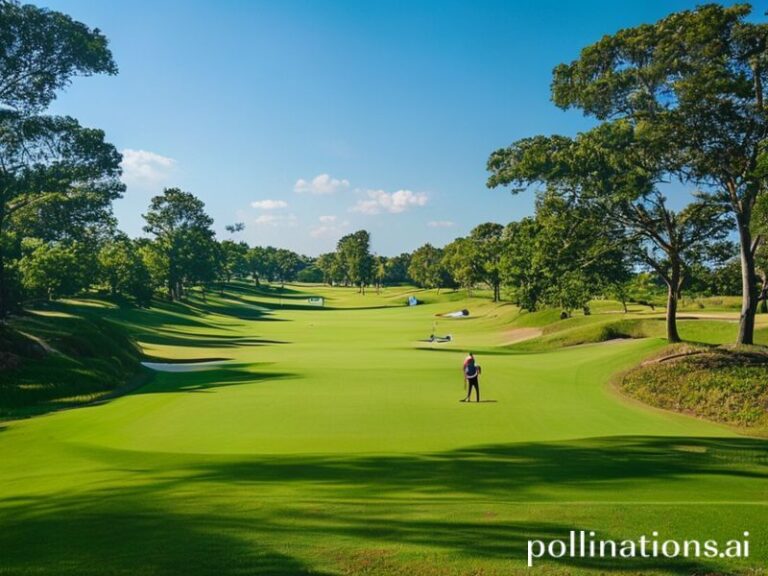Patrick McEnroe: The Last American Tennis Envoy in a Post-Soft-Power World
Patrick McEnroe and the Quiet Apocalypse of American Soft Power
By Diego Serrano, Global Desk
PARIS — Somewhere between the disappearance of the last American tennis prodigy and the rise of pickleball as geopolitical metaphor, Patrick McEnroe has become the most useful diplomat Washington never appointed. To the casual observer he is merely the younger, less volcanic McEnroe—brother of the seven-time-major screamer, ESPN analyst, occasional Davis Cup captain, wearer of sensible cardigans. But zoom out to 30,000 feet—roughly the cruising altitude of the Gulfstreams that now ferry Saudi sovereign-wealth executives to Wimbledon—and you’ll notice McEnroe is less a man than a weather vane for the slow, exquisite collapse of U.S. cultural influence.
Consider the optics: while China funnels state money into building 30,000 new courts and the EU debates whether tennis skirts qualify as carbon-negative sportswear, McEnroe tours the globe giving masterclasses on “American competitiveness” to audiences who politely applaud, then go home and binge Carlos Alcaraz highlights. The irony is almost too elegant to bear. Twenty years ago the U.S. could weaponize Michael Jordan, Serena Williams, or even Andre Agassi’s hair gel to sell freedom and Gatorade in the same breath. Today we send a genial 57-year-old with a podcast.
Yet McEnroe’s itinerary reads like a Rand McNally of shifting alliances. Last month he was in Riyadh, advising the Saudis on how to grow “grassroots” programs—yes, grass on the Arabian Peninsula—while the PIF (Public Investment Fund) calculated how many Wimbledon titles equal one Newcastle United. In Shanghai he opened a “performance lab” next door to a Huawei campus, a juxtaposition so deliciously on-the-nose that Henry Kissinger would have blushed. The Chinese politely filmed every drill, no doubt feeding the biometric data into a file labeled “How to beat the Americans at Their Own Net Game, Vol. III.”
Back home, the U.S. Tennis Association keeps him on retainer partly for expertise, partly for nostalgia. His 2008 Davis Cup victory—won in front of a Portland crowd that chanted “USA!” between IPAs—now feels as distant as the Kyoto Protocol. The Americans haven’t lifted the chalice since; meanwhile, Russia and Canada treat the tournament like a polite annexation. McEnroe’s response? A new youth initiative called Net Generation, whose logo looks suspiciously like the recycling symbol. Somewhere, an unpaid intern is Googling “how to trademark resilience.”
The broader significance is deliciously grim. Soft power—once the polite cousin of aircraft carriers—now runs on TikTok algorithms, Saudi money, and whatever Netflix puts in the “trending” row. McEnroe’s travels illustrate the new arithmetic: one former pro equals one Instagram reel equals one week of distraction before the next geopolitical dumpster fire. When he tells a room of Singaporean financiers that “sports build character,” they nod, then ask if character can be tokenized on the blockchain.
And so the world spins. In Serbia, Novak Djokovic opens a vegan restaurant that moonlights as a soft-power embassy; in Spain, Alcaraz signs a Rolex deal rumored to include a clause about “territorial integrity.” McEnroe, meanwhile, clutches his laminated coaching badges like a Cold War attaché gripping a diplomatic pouch. He knows the score; he just refuses to retire from the match. You have to admire the futility. It’s very American.
Conclusion
We will never again fire tennis balls wrapped in the Constitution across the net; the strings would snap under the weight. Patrick McEnroe, genial relic in pastel, keeps lobbing anyway, offering clinics on footwork while the stadium lights dim for lack of a sustainable energy grid. If you listen closely at the next exhibition in Dubai, you can almost hear the faint applause of history—equal parts gratitude for the effort and relief that no one is keeping actual score anymore.

